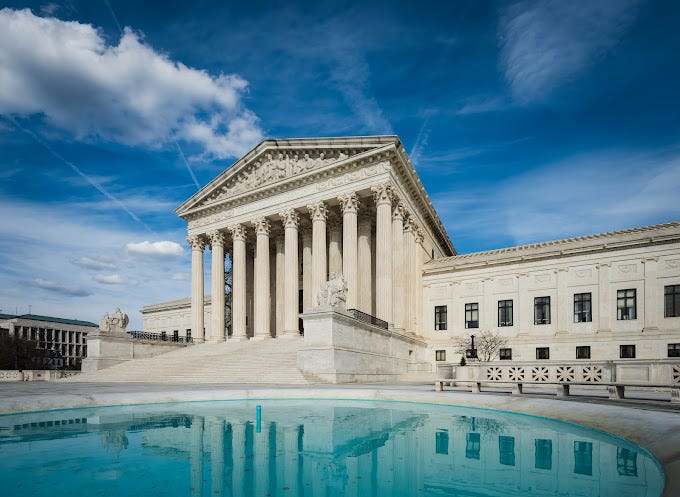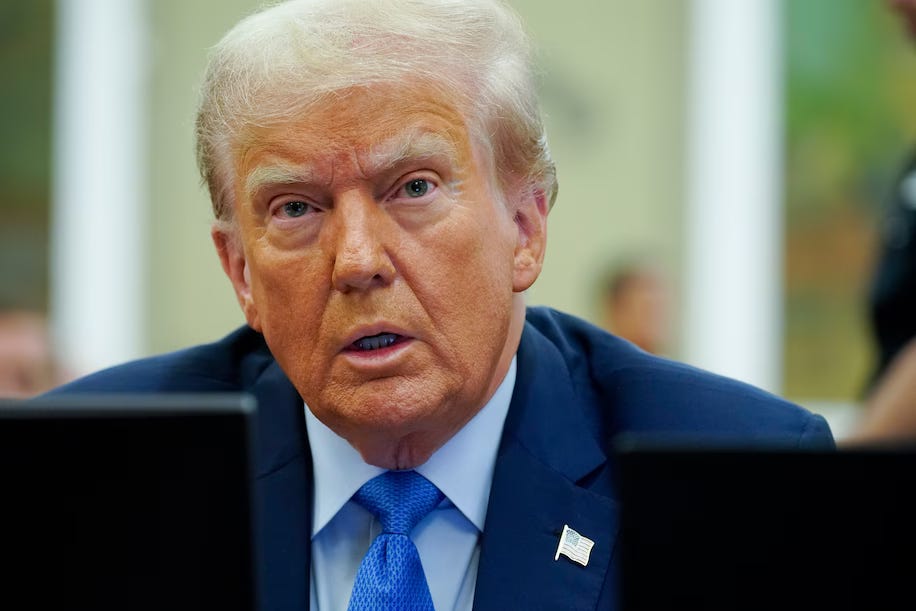14th Amendment Does NOT Disqualify Trump's Candidature
US Supreme Court Decision Overturns Colorado Apex Court's Verdict, Striking his name off the Ballot: A Unanimous Stand with Broader Implications.
Introduction
On March 4, 2024, the United States Supreme Court delivered a landmark unanimous verdict, conclusively settling the contentious issue of whether the 14th Amendment, a relic of the Civil War era, disqualifies Donald Trump from running for the office of the President. This pivotal ruling favoring Donald Trump, greenlights his candidature for the upcoming presidential election. It effectively nullified an earlier disqualification by the apex Colorado Court, which had cited his role in the events of January 6, 2021. It also overrides the cases decided in other states, essentially on this issue. This significant decision not only profoundly influences Trump's political trajectory but also ignites a complex debate on the delineation of power between state and federal authorities, alongside the constitutional criteria for determining the eligibility of national office candidates.
Unanimous Decision of a “Divided” Court
The Core Ruling
The Supreme Court's 13-page unanimous opinion stated that the Constitution does not allow a single state to unilaterally disqualify a presidential candidate, emphasizing the potential for chaos if candidates could be deemed ineligible in some states but not others. The Court highlighted, “Nothing in the Constitution requires that we endure such chaos — arriving at any time or different times, up to and perhaps beyond the inauguration.”
A Sharp Concurrence
Despite the unanimity on the verdict, the court's three liberal justices issued a concurrence that criticized the conservative majority for overreaching. They accused their colleagues of unnecessarily deciding an issue not directly before the court in an effort to “insulate all alleged insurrectionists from future challenges to their holding office.”
Trump's Reaction and the Legal Landscape
Following the verdict, Donald Trump heralded the decision with an exuberant message, declaring it a “BIG WIN FOR AMERICA!!!” This judgment arrives at a pivotal moment, with Trump confronting several criminal indictments that could influence his chances of election. Moreover, in April, the Supreme Court is slated to hear additional cases concerning presidential immunity from criminal and civil cases after demitting office, potentially impacting Trump's legal position and his re-election campaign.
The Debate Over Section 3 of the 14th Amendment
The crux of the legal argument revolved around a post-Civil War provision of the 14th Amendment, which bars individuals who engaged in insurrection from holding office. The Supreme Court's interpretation that states cannot enforce this clause against federal candidates raises questions about the enforcement mechanisms for this provision and the role of existing and future federal legislation in disqualifying candidates.
Political and Legal Ramifications
The Supreme Court's ruling has ignited a vigorous debate regarding its involvement in political matters, particularly against the backdrop of an electrifying presidential election. Critics contend that the court has encroached upon politically charged domains, potentially establishing a precedent that may affect the integrity of future elections and the application of constitutional safeguards against insurrection. Conversely, supporters argue that a contrary decision would have permitted individual states to exclude his candidacy, thereby undermining the democratic electoral process and precipitating a constitutional crisis. Proponents of the ruling assert that the decision was necessary to avert such turmoil, criticizing opponents for attempting to exploit a seemingly antiquated and irrelevant constitutional clause to unjustly bar him from the presidential contest. This perspective underscores a deep divide over the interpretation and application of constitutional principles in contemporary political discourse.
Summing Up
The Supreme Court's decision to favor Donald Trump illuminates the intricate dynamics of state authority, federal oversight, and the nuances of constitutional interpretation. This resolution, particularly through the lens of the 14th Amendment, addresses the immediate matter of Trump's eligibility but simultaneously catalyzes a wider exploration into the qualifications for public office, the mechanisms for upholding constitutional protections against insurrection, and the equilibrium of power across government's various strata. As the United States advances, the ramifications of this judgment are poised to profoundly influence both political and judicial spheres, moulding the narrative surrounding democracy, governance, and the rule of law. Moreover, the nation's focus is now keenly set on the Supreme Court’s forthcoming April hearing, which promises to critically impact several criminal proceedings, especially where the debate over presidential immunity stands at the forefront. This upcoming hearing underscores the ongoing, significant interplay between the nation's highest legal authorities and its political fabric.




